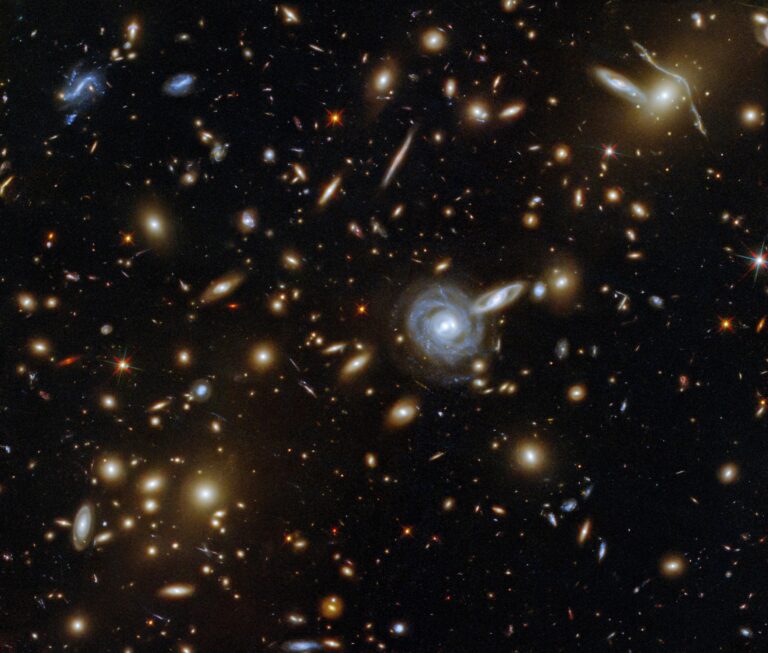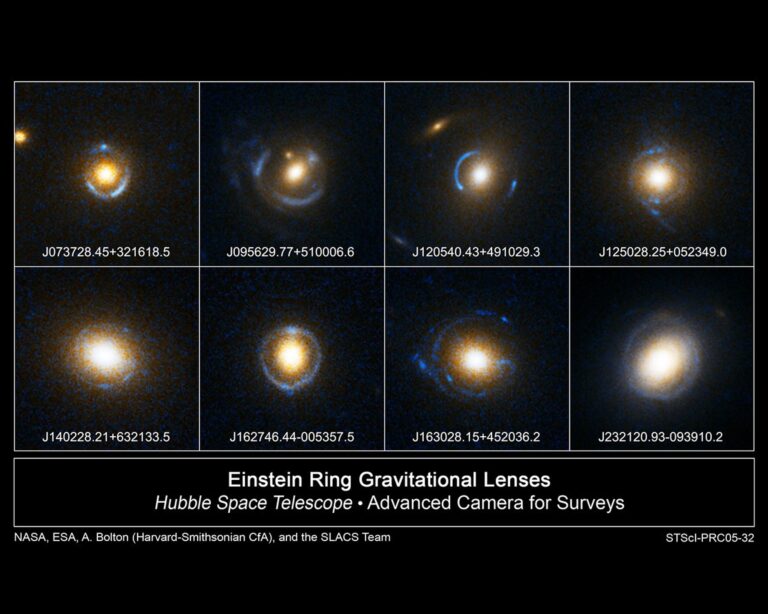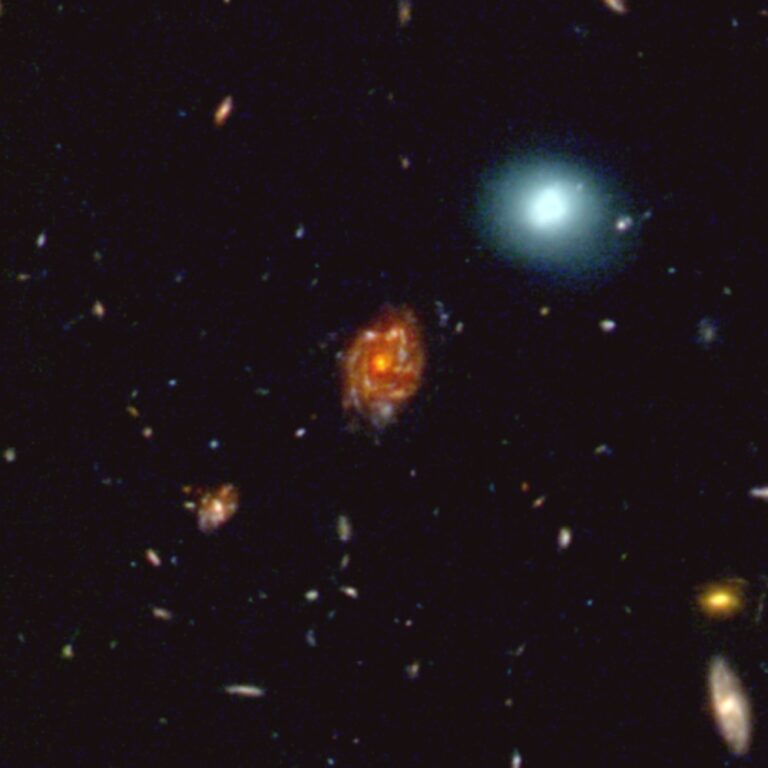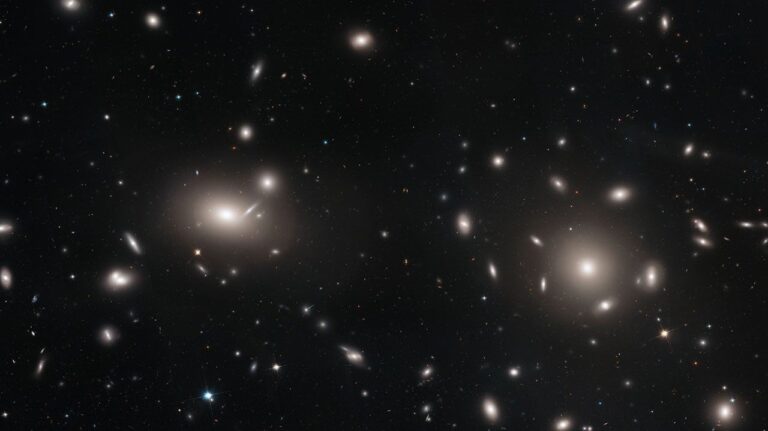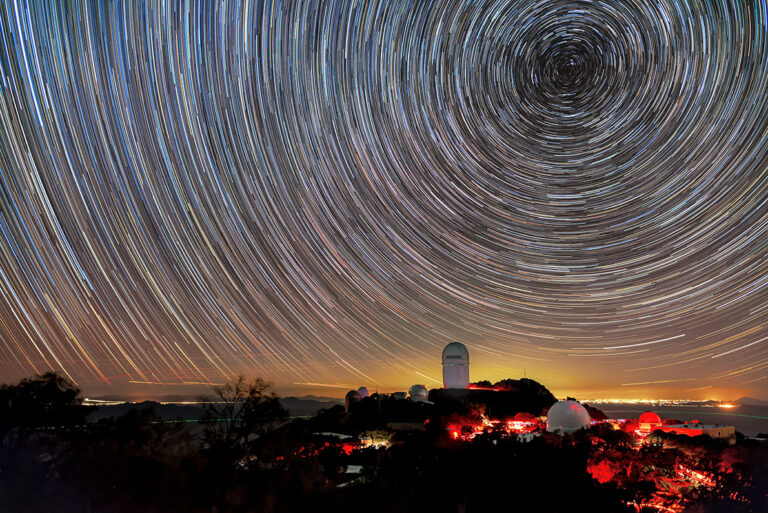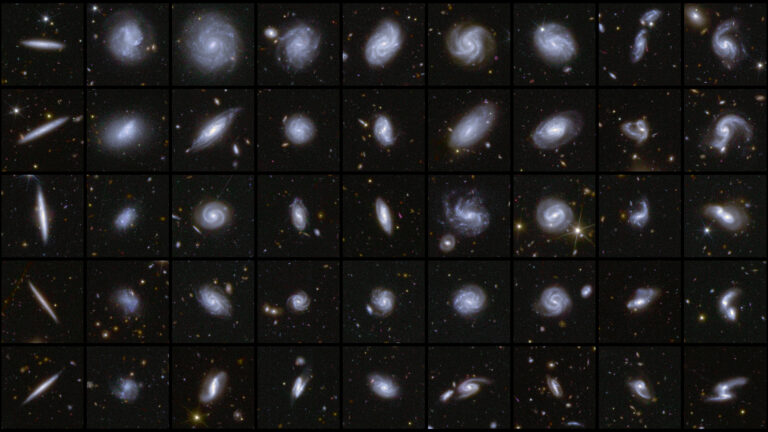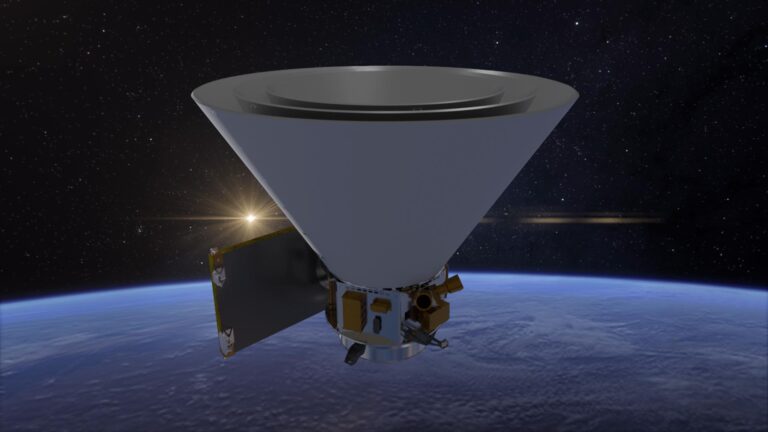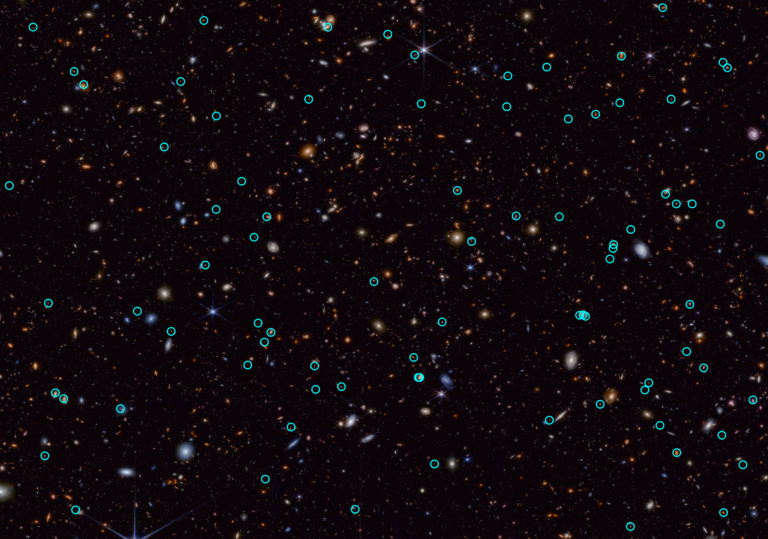Key Takeaways:
A: We’ve known since the early 20th century that the universe is expanding — after observations by Edwin Hubble and others showed that other galaxies are almost all moving away from us — and the greater their distance, the faster they’re doing so. Astronomers long expected that this cosmic expansion should be slowing down due to the combined gravitational pull of the universe’s seen and unseen matter. However, in the late 1990s, two teams of astronomers — one led by Brian Schmidt and Adam Riess and the other by Saul Perlmutter — discovered evidence, using exploding stars in other galaxies, that cosmic expansion was not, in fact, slowing down, but actually accelerating. The three team leaders later shared the 2011 Nobel Prize in Physics for this accomplishment. The mysterious culprit, originally conceived of by Albert Einstein and which modern cosmologists call “dark energy,” produces repulsive gravitational effects that cause the average distance between galaxies to increase faster and faster over time. Determining dark energy’s true nature remains one of the greatest mysteries in theoretical physics today.
So, does the existence of dark energy in our accelerating universe mean that space is expanding everywhere, even on small scales such as those inside of an atom, where most of the volume is effectively “empty” space? The short answer is no! And we should all count ourselves lucky that we live in such a universe. Thankfully, the local electromagnetic forces that hold the atom’s positively charged nucleus and negatively charged electrons together, as well as the strong nuclear forces confining the nucleus, are significantly stronger than the potentially disruptive forces of dark energy.
On larger scales, electromagnetic and gravitational forces prevent planets and moons from expanding as the universe expands. On still larger scales, the force of gravity that binds together systems like stars, solar systems, galaxies, and galaxy clusters is similarly stronger than the local effects of dark energy, which needs vast swaths of space to cause cosmic-scale accelerated expansion. Still, cosmologists can easily imagine “big rip” universes where dark energy was stronger than these local forces, either early on or at late times in cosmic history. In such universes, dark energy could have prevented stars or galaxies from forming or even eventually ripped apart atoms themselves as the expanding universe accelerated itself into oblivion. Needless to say, if this was such a universe, we wouldn’t be here to discuss it!
Andrew Friedman
Assistant Research Scientist, University of California, San Diego


